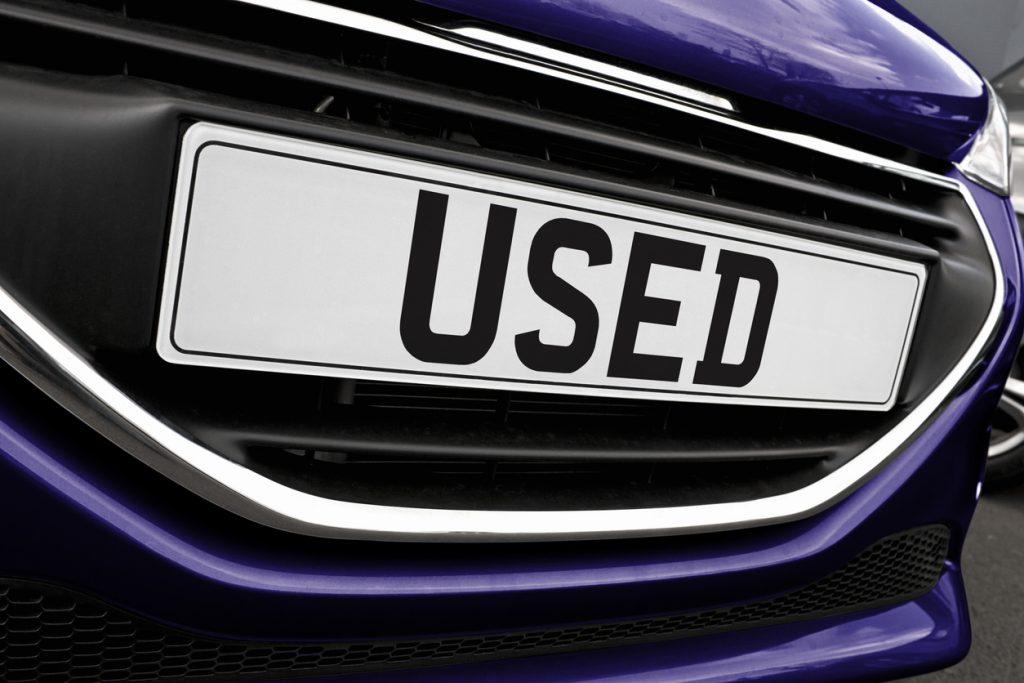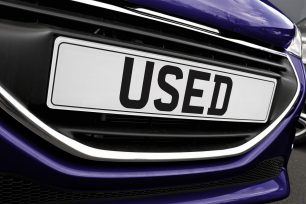We’ve all heard of the phrase “buying a lemon,” which most commonly refers to the purchase of a defective vehicle. Whether you buy a new car or a used car, you’re making a major purchase and don’t want to incur frequent costly repairs because you bought a damaged vehicle. Luckily each state has enacted a Lemon Law to make sure you’re protected in case you did buy a vehicle that’s inherently defective.
So what does the Lemon Law cover and what should you know as a consumer before you make a vehicle purchase? We have the important answers.
History of the Lemon Law
So how did the Lemon Law come about? The Lemon Law dates back to 1975, when the federal government enacted the Magnuson-Moss Warranty Act. Its purpose was to protect consumers in all states from deceptive warranty practices. Although consumer products are not required to have warranties , if one is given, it must comply with the Magnuson-Moss Act. While lemon laws most commonly refer to new motor vehicles , they also extend to motorcycles and motor homes as well as any appliances and machines. For the purpose of this article, we’re referring to vehicles. Under the lemon law , you have rights for a replacement or refund if you bought a defective product.In 1982, Connecticut was the first state to put a “Lemon Law” in place. Titled, “An Act Concerning Automobile Warranties,” it referred to defective vehicles at or under two-years-old or within 24,000 miles on the odometer. The law enacted an informal arbitration process to resolve disputes between vehicle owners and manufacturers. Connecticut’s dedication to providing consumer protection paved the way for all 50 states and Washington, D.C. to enact their own versions of lemon laws.
Is My Car a Lemon?
While Lemon Laws vary by state, a car is typically considered a lemon if it:- Has a substantial defect that’s covered by the warranty that occurred within a certain timeframe or number of miles after the car was purchased, and
- Is not able to be fixed after a reasonable number of repair attempts.
The second gray area is what qualifies as a reasonable number of repair attempts. Most state lemon laws indicate that three repair attempts is considered reasonable. Or, if the defect could cause injury or fatality, only one or two repair attempts are required. Because the terms vary by state, it’s important to familiarize yourself with your state’s lemon law.
Also, it’s worth noting that all repairs should be done through the dealership. Taking your vehicle elsewhere for repairs will void the warranty and you will not be protected by your state’s lemon law.
What to Do if Your Car is a Lemon
So you’ve determined that your car meets the criteria to be considered a lemon. Here are the steps you should follow:Step 1: Gather Detailed Records
Because you’ll need to prove your car’s defects and that there were a reasonable number of attempts to repair it within a certain timeframe, it’s critical that you keep records that detail your car’s defects and service history. This documentation should include records of repair work, dates of when the vehicle’s issues arose, and any communication you had with the manufacturer or dealer.
Step 2: Contact the Manufacturer
In order to get a refund, you need to contact the manufacturer of your vehicle in writing. Your formal letter should include all relevant information including when you bought your car, when problems began to occur, when you contacted the dealer, and dates of attempted repairs. You can find template lemon law demand letters on state attorney general websites and through a number of online sources with a simple google search.
Step 3: Apply for Arbitration
If the manufacturer doesn’t offer you a satisfactory settlement, the next step is legal action. Most states require that lemon law cases go through an arbitration process before reaching the court system.
You can apply for arbitration by filling out an arbitration form on your state’s website. While you can file and go through arbitration without an attorney, you may want to hire one due to the complexity and ambiguity of lemon laws. Also, this will improve your chances as the manufacturer will have a qualified attorney on their side. If you win your case, the manufacturer will reimburse you for your legal fees.
During arbitration, you and the manufacturer present evidence to an impartial arbitrator. If the arbitrator sides with you and finds that your vehicle is a lemon, you’ll be awarded a replacement vehicle or full refund. If the arbitrator rules against you, you will not receive an award. Although most arbitration rulings are final, most states will allow both parties to appeal the decision. If the case is appealed, it will move to court and will be decided on by a judge.
Types of Arbitration: State and Manufacturer
Before applying for Lemon Law Arbitration , you must have notified the dealer or manufacturer that your vehicle is a lemon and that you are seeking a refund or replacement. If the manufacturer replies within seven business days, you must allow a final repair effort.State Lemon Arbitration
The state`s Lemon Law Arbitration Program hears only Lemon Law cases. To qualify for State Lemon Arbitration, your vehicle must have a substantial defect your dealer hasn’t been able to repair and you must have applied within two years of purchase and before the manufacturer's warranty has lapsed. State Arbitration is all or nothing. If the arbitrator determines that your vehicle qualifies as a lemon, you’ll get a full refund. Conversely, if the arbitrator decides that your vehicle isn’t a lemon, you will receive no award.
Manufacturer Sponsored Arbitrations
You may also request manufacturer-sponsored arbitration. Through the manufacturer-sponsored arbitration process, the arbitrator can award additional repairs, a partial refund, or a full refund. If you are not satisfied with the outcome, you can request state arbitration.
How Long Will The Lemon Law Process Take?
It depends on whether or not the dealer is able to repair your vehicle, how thorough and persistent you are in your communications, and whether you pay attention to filing deadlines and responding to correspondence from the manufacturer, the state or other entities with respect to your complaint.You do need to keep meticulous records of all repairs done to your vehicle, copies of all receipts and invoices, and logs of all phone calls between you and the manufacturer and dealer. There are many aspects of filing a complaint for protection under state lemon laws that you need to pay attention to. It will likely take several months for a complete resolution after you file your lemon law claim, but if you keep at it, you’ll likely be satisfied in the long run.
Used-Car Lemon Laws
 Lemon laws
can also apply to
used cars
. Six states including Connecticut, Massachusetts, Minnesota, New Jersey, New Mexico, and
New York
have
used vehicle
lemon laws
in place. In these states,
used cars
have a
warranty
and dealers have the chance to repair them if problems occur during this
warranty
period. Additional states offer protection for
used car
buyers and require
used-car
warranties
. However, only the states with
used car lemon laws
in place require the dealer to replace or fully refund the defective
used car
.
Lemon laws
can also apply to
used cars
. Six states including Connecticut, Massachusetts, Minnesota, New Jersey, New Mexico, and
New York
have
used vehicle
lemon laws
in place. In these states,
used cars
have a
warranty
and dealers have the chance to repair them if problems occur during this
warranty
period. Additional states offer protection for
used car
buyers and require
used-car
warranties
. However, only the states with
used car lemon laws
in place require the dealer to replace or fully refund the defective
used car
.
As an example, here are the conditions for the Massachusetts used car lemon law, which applies to cars sold by Massachusetts dealers that cost more that $700 and have less than 125,000 miles on the odometer during the time of purchase:
- Dealers must provide you with a written warranty that mentions what qualifies as a substantial defect. This vehicle warranty also clearly explains the timeframe during which you are covered for warranty repairs.
- Terms of protection is based on the vehicle’s mileage at the point of sale:
- Less than 40,000 miles: 90 days or 3,750 miles
- 40,000-79,000 miles: 60 days or 2,500 miles
- 80,000-124,999 miles: 30 days or 1,250 miles
Consumer Protection from the Lemon Law
While each state has their own version of the lemon law , the basic premise remains the same. Under the lemon law , consumers are entitled to compensation if they buy a faulty vehicle that is deemed a lemon. The lemon law also applies to lessees as well as new car buyers.There are three different ways a consumer can be compensated. The manufacturer can:
- Buy back the vehicle for the full purchase price minus an amount for the use of the vehicle. The amount deducted takes into account mileage and other factors.
- Replace your vehicle with a comparable one in working condition. This is usually the same make, model, and trim.
- Provide a cash settlement.
Bottom Line
If you’re purchasing a new or used car , hopefully you’ll never have to exercise your rights that are protected by your state’s lemon law . However, if you do find that your new or new-to-you vehicle has a substantial defect, it’s important to understand your rights and how you can get your vehicle fixed.Check out our other helpful car buying resources:
- iSeeCars Best Cars Rankings
- How to Buy a Used Car
- Car Leasing Vs. Buying: Which is Better?
- What Does Certified Pre-Owned Mean?



































































